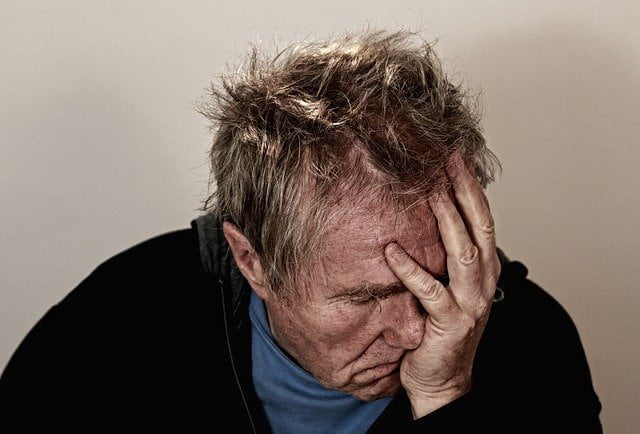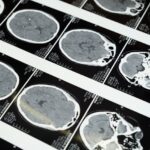Lortab Addiction: Symptoms, Treatment, and Recovery
Quick links for Lortab Addiction: Symptoms, Treatment, and Recovery
- How to Use Lortab & Benefits
- Is Lortab Addictive?
- Symptoms of Lortab Addiction & Withdrawal
- Lortab Addiction Treatment at a Drug and Alcohol Rehab
- Therapy for Lortab Addiction at Drug and Alcohol Rehab
- Reach Out Today for Help With Lortab Addiction
- References for Lortab Addiction: Symptoms, Treatment, and Recovery
Lortab is a form of pain relief medication composed of hydrocodone and acetaminophen.
Hydrocodone is an opioid and pain-relieving agent. It is commonly prescribed to patients who are suffering from moderate pain.
It is also prescribed as a form of cough medicine.
Hydrocodone has a history of being the most frequently prescribed opioid in the US [1] over the past decade
Lortab is the most frequently prescribed form of the Hydrocodone combination.
However, the number of Hydrocodone prescriptions is decreasing because of its opioid effects and addictive qualities.
Acetaminophen is another pain reliever.
It is used in Lortab to help enhance the effect of other pain relievers such as hydrocodone.
It is a pain reliever and it can also reduce fever symptoms. What makes Acetaminophen different from Hydrocodone is that it isn’t an opioid, and doesn’t have the same addictive qualities.
How to Use Lortab & Benefits

Doctor and patient discussing Lortab addiction
Patients are prescribed Lortab by a doctor when they are suffering from moderate to severe pain.
It is often taken in the form of an oral tablet.
Dosage is typically based on weight, and large quantities will have a greater effect on patients who weigh less, so it is important to seek advice from a doctor.
Is Lortab Addictive?

Therapist speaking with a patient about Lortab addiction
There is the potential for misuse and addiction when it comes to Lortab.
This is because Hydrocodone is an opioid and opioids have extremely addictive properties.
When someone takes Lortab in order to relieve symptoms of pain, Hydrocodone binds to opioid receptors.
Opioid receptors mediate the human body’s response to drugs, hormones and more. [2]
This can not only facilitate its medicinal purposes such as pain relief, but it can also stimulate the release of dopamine.
While dopamine is the “feel good” hormone that is released in our brain when we experience rewarding and pleasurable activities such as eating, sexual intercourse, exercising, and more, substances can overstimulate dopamine pathways.
When dopamine pathways are overstimulated, it can lead to a strong dependence on that specific substance in order to experience pleasure and happiness.
This can lead to a range of psychological and physical health issues associated with addiction.

Black and white photo of a man suffering from Lortab addiction withdrawal
Subjects who are addicted to opioids will experience a range of physical and mental withdrawal symptoms such as:
- Headaches
- Nausea
- Vomiting
- Trembling
- Insomnia
- Seizures
As a result of these withdrawal symptoms, patients are likely to relapse by taking more opioid substances in order to keep withdrawal symptoms away.
However, this will only exacerbate their addiction.
Taking more opioids will increase their tolerance to the drug, requiring higher doses to experience the desired positive effects, and abstaining will become even more dangerous.
Because of its addictive properties, the UK government’s regulation rules are strict on this particular substance.
In the UK, opioids such as Hydrocodone are classified as a Class A drug.
This means that illegal possession of this substance will lead to some of the harshest punishments.
The sentences for possessing a class A drug such as Hydrocodone can be up to 7 years as well as a fine.
Symptoms of Lortab Addiction & Withdrawal

Woman feeling the effects of withdrawal from Lortab
To suddenly stop consuming Lortab (or Hydrocodone) whether as a medication or a recreational drug can lead to withdrawal symptoms.
In order to reduce the likelihood or severity of withdrawal symptoms, subjects and patients will need to seek medical advice from a doctor.
Withdrawal symptoms may be inevitable depending on the severity of someone’s dependence on Lortab.
However, there are many ways to reduce the severity of withdrawal symptoms.
Patients can receive medication to reduce the severity of symptoms, and they may also be prescribed lower dosages in order to taper rather than suddenly abstain.

Older man holding his head and experiencing withdrawal from Lortab addiction
In addition to the symptoms of substance addiction, consuming too much Lortab can lead to physical problems such as liver failure.
Consuming too much Acetaminophen and Hydrocodone together in the form of Lortab has been linked to many cases of acute liver failure. [3]
These cases include unintentional consumption of Acetaminophen. Because of the potential health effects, it is important to stick to the dosage prescribed by the doctor.
Patients who are suffering from another form of substance addiction (e.g. alcohol, heroin, cocaine) are more likely to experience greater dependence on this substance.
Before using Lortab as a medication, it is important to disclose to the medical professional your history of dependence.
Hydrocodone is often combined with alcohol consumption [4] among patients suffering from addiction, and this can complicate symptoms.
Common symptoms associated with Lortab addiction include but aren’t limited to:
- Anxiety
- Irritability & mood swings
- High blood pressure
- Muscle aches & cramps
- Insomnia and restlessness
- Excessive sweating
- Nausea and vomiting
- Shaking and tremors
- Stomach pains
Lortab Addiction Treatment at a Drug and Alcohol Rehab

Addiction worker taking notes whilst speaking with a patient about Lortab addiction
When patients are suffering from dependence on either Lortab or Hydrocodone, they can recover at a drug and alcohol rehab.
Here patients will be able to undergo a comprehensive addiction treatment programme that will work to help them optimise their recovery.
At a drug and alcohol rehab, patients will be able to undergo outpatient or inpatient programmes depending on the severity of their dependence.
Consultant psychiatrists and addiction specialists will utilise the ASAM Criteria [5] in order to determine the level of treatment required.
As an outpatient, patients will spend a few hours per week undergoing counselling sessions in order to overcome addiction.
They will be able to attend therapy sessions and support sessions, and then return home each night.
This level of flexibility allows patients to maintain employment and cater to other responsibilities outside of recovery.
This less intensive form of treatment typically lasts a few months to a year or so depending on their progress.
As an inpatient, patients will enter a residential rehab facility and stay there for around 28 weeks.
Patients can stay for a shorter or longer period of time should they require, and patients are free to leave if they desire.
At a residential rehab facility, patients will stay in a safe and comfortable setting while undergoing a medical detox, therapy and counselling, relapse prevention planning and more.
A residential rehab facility will optimise the inpatient’s recovery because they can direct their entire focus towards overcoming addiction.
They will be temporarily living in an environment which minimises relapse triggers, and they will also receive 24/7 medical supervision at this facility.
Therapy for Lortab Addiction at Drug and Alcohol Rehab

Support group discussing Lortab addiction
There are a range of therapy methods used at a drug and alcohol rehab.
One of these isn’t necessarily better than another, but certain patients may benefit from one in particular.
It is important to incorporate a range of therapy methods in a recovery programme to provide comprehensive treatment.
Popular forms of therapy incorporated in a drug and alcohol treatment programme include:
- Cognitive Behavioural Therapy: Cognitive Behavioural Therapy (CBT) is a 1-1 form of communication therapy. During the session, the patient and a licensed counsellor will address some of the root causes of their addiction and develop healthier coping mechanisms and lifestyle habits in order to sustain abstinence.
- Dialectical Behavioural Therapy: Dialectical Behavioural Therapy (DBT) is similar to CBT, however, there is more emphasis placed on the emotional side of recovery. Patients will be guided through sessions which involve developing emotional management strategies related to mindfulness, meditation and more. Patients who suffer from anxiety, depression, bipolar disorder, and other conditions will benefit from this form of therapy.
- Motivational Interviewing: A unique form of therapy which aims to incite the intrinsic motivation of patients is Motivational Interviewing. Many patients may have resigned themselves to suffering from addiction. These patients require guidance to develop a more positive perspective which can facilitate recovery, and to understand that they already have the pre-requisite tools and knowledge to live a healthy life.
- Support Sessions & Group Therapy: Therapy sessions that incorporate a group of people can be highly beneficial due to the potential of positive reinforcement. This can increase the level of motivation and commitment towards recovery. Furthermore, listening to other patients’ experiences can allow others to resonate with them, demonstrating that addiction is a problem that many people face and that they are not alone. Groups like SMART Recovery [6] and Narcotics Anonymous [7] can be some of the best organisations for providing mutual peer support.
- Family Therapy: Family members can have either a positive or negative effect on a patient’s condition. Positive family members can form a support network, and they can benefit from family therapy which educates them about their loved one’s condition. Family members who can negatively affect their loved one’s addiction can benefit from developing healthier habits and communication methods to form a better recovery environment.
- Holistic Therapy: An optimal addiction treatment programme will also take into the holistic and physical aspects of recovery. Holistic therapy will offer activities that benefit mental, physical, and spiritual health. These activities include but are not limited to yoga, meditation, adventure therapy, art therapy, music therapy and more.
Reach Out Today for Help With Lortab Addiction

Person looking for help with Lortab addiction
For help beating Lortab addiction, reach out today by dialling the number 0800 088 66 86.
With your intrinsic motivation and our experience with countless patients, we can optimise your recovery and help you return to a healthy life of normalcy.
When you reach out to us, a team member from Rehab Recovery will greet you and be at your disposal to answer any questions or concerns regarding the addiction treatment process.
Whether you want to discuss addiction treatment options, your current condition, the logistics of rehab, or even something else entirely, we are here to answer any questions that you have.
Once you are ready, we can help you by conducting a health assessment.
This health assessment will help us and addiction specialists understand your condition, and they’ll use this information to determine the most appropriate steps toward recovery.
You’ll simply need to answer questions regarding your addiction and medical history, physical and mental health, placement preferences and so on.
The health assessment can be done over the phone and free of charge.
References for Lortab Addiction: Symptoms, Treatment, and Recovery
[1] https://www.deadiversion.usdoj.gov/drug_chem_info/hydrocodone.pdf
[2] https://www.ncbi.nlm.nih.gov/books/NBK546642/
[3] https://www.ncbi.nlm.nih.gov/books/NBK548700/
[5] https://www.asam.org/asam-criteria/about-the-asam-criteria




